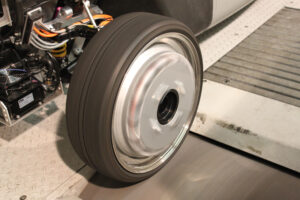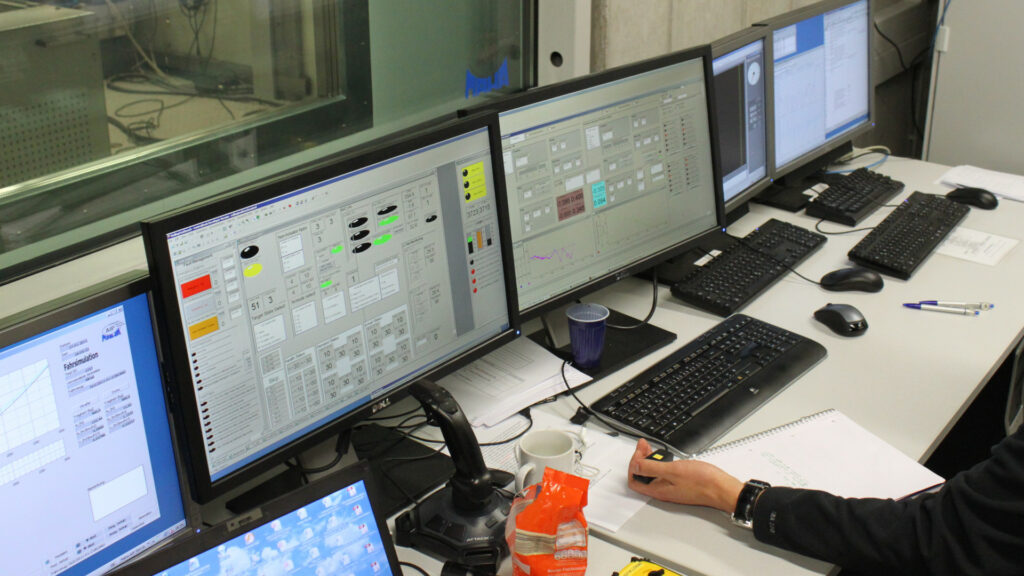The vehicle’s electric drivetrain enables recuperation and thus offers a fast and energy-efficient braking actuator and is able to complement the operation of the traditional friction brakes. The decision on how to split the braking torque among the friction brake and the electric motor is one of the main issues of such hybrid braking systems. With this challenge in mind, a new Model Predictive Control Allocation (MPCA) approach for hybrid braking was elaborated. In comparison to daisy chain and dynamic control allocation (state-of-the-art torque blending solutions at that time) the MPCA offers faster transient response, without compromising the energy recuperation efficiency of the actuators. In addition, a linear wheel slip controller was developed to regulate the braking force during emergency braking maneuvers. The tuning of this wheel slip controller was carried out using robust pole placement techniques, which ensures good operation in spite of uncertainties in the tire-road friction coefficient and the vertical load. The aforementioned interacting controllers were successfully tested with the total vehicle on an all-wheel roller rig suitable for passenger motor vehicles of all classes as well as small transporters. Additionally, the longitudinal dynamics was explored and driving and braking performance were assessed.

